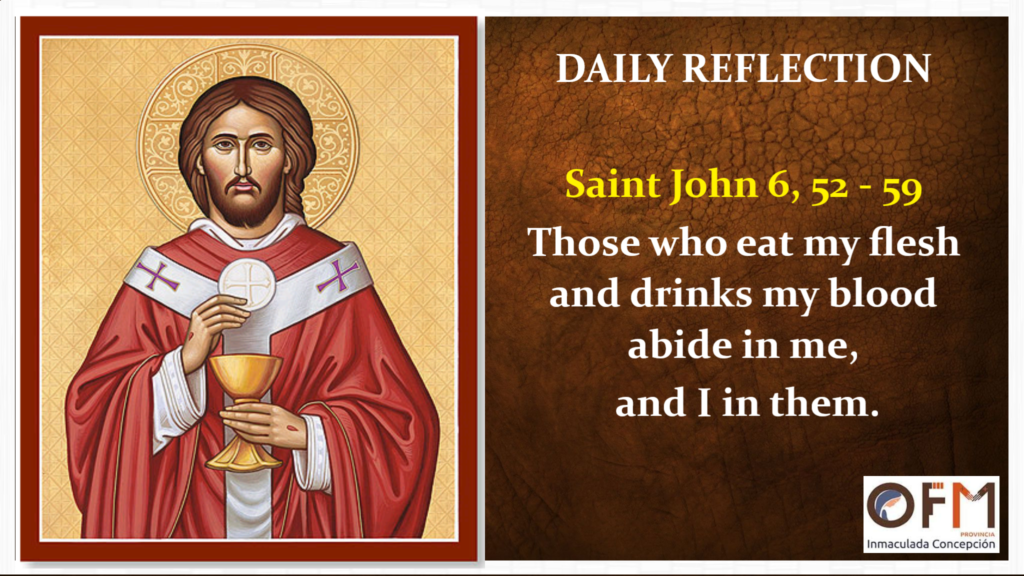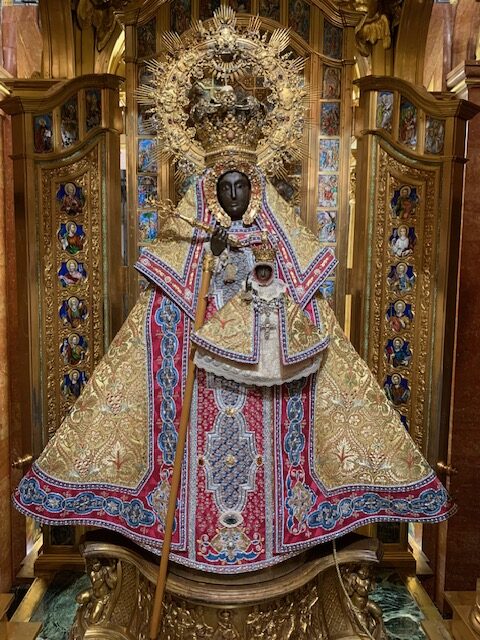
Friday third week of Easter
Gospel of Saint John 6, 52 – 59
At the end of Jesus’ discourse on the Bread of Life, the theme is already clearly «Eucharistic.» Before he spoke of faith: of seeing and believing in the Messenger of God. He now speaks of eating and drinking the Flesh and Blood that Jesus is going to give for the life of the world on the cross, but also in the Eucharist, because he wanted the community to celebrate this memorial of the cross.
Now, the difficulty his listeners have (v. 52) is typically Eucharistic: «How can he give us his flesh to eat?» Before (v. 42) it had been Christological: «how does this man say that he came down from heaven?» The fruit of eating and drinking Christ is the same as that of believing in him: sharing in his life. Earlier he had said: «He who believes has eternal life» (v.47). Now: «he who eats this bread will live forever» (v.58).
There are two verses that describe in an admirable way the consequences that the Eucharist will have for us, according to the thought of Christ: «He who eats my flesh and drinks my blood abides (dwells) in me and I in him» (v 56): the intercommunication between the Risen One and his faithful in the Eucharist. And he adds a comparison that we would not have dared to affirm: «the Father who lives has sent me and I live because of the Father: in the same way, the one who eats me will live because of me.» The union of Christ with his Father is mysterious, vital and profound. Well, that’s how Christ wants it to be for those who receive and eat him. He does not say that he «will live for me», but «for me.» As later he will say that the branches live if they remain united to the vine, which is Christ himself.
Reflection
Jesus’ speech has also been intense, and invites us to think if our celebration of the Eucharist produces in us those effects that he announced in Capernaum.
So today we have to ask ourselves, Is it noticeable that, as we celebrate the Eucharist and in it we participate in the Flesh and Blood of Christ, we are stronger in our path of faith, in our fight against evil? Or are we still weak, sick, apathetic? What Jesus says: «He who eats me remains in me and I in him», is it true for us only during the moment of communion or also throughout the day?
After communion – in those brief but intense moments of silence and personal prayer – we can ask the Lord, whom we have received as food, to truly give us his life, his health, his strength, and to give it to us for all day. Because we need her to live as his followers day after day.
Fr. Antonio Majeesh George Kallely, OFM.
Real Monasterio de Sta. Mª de Guadalupe (Cáceres).










